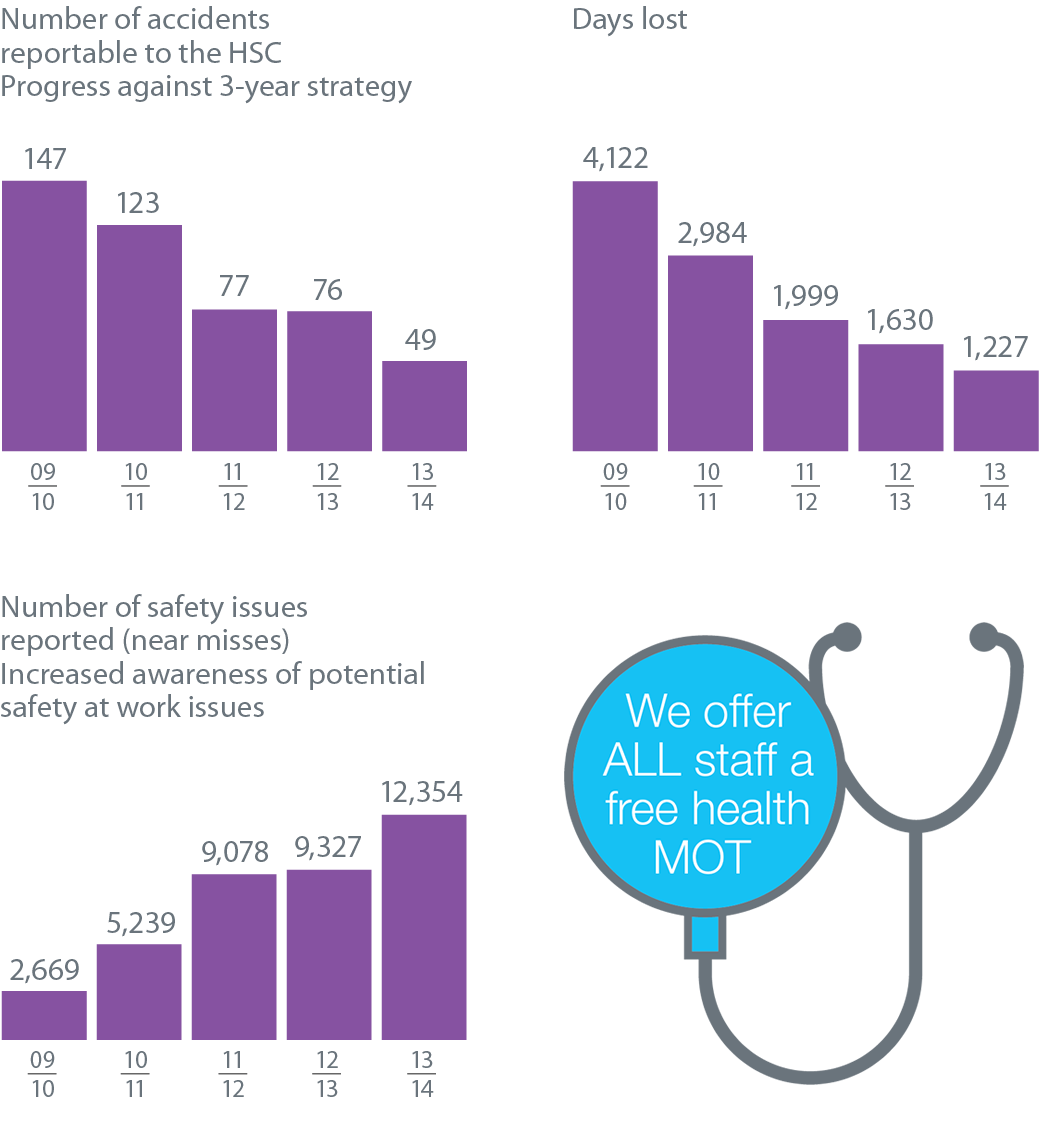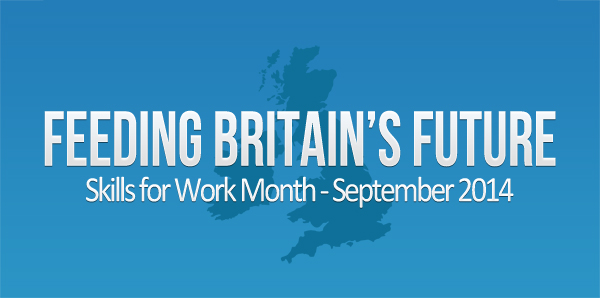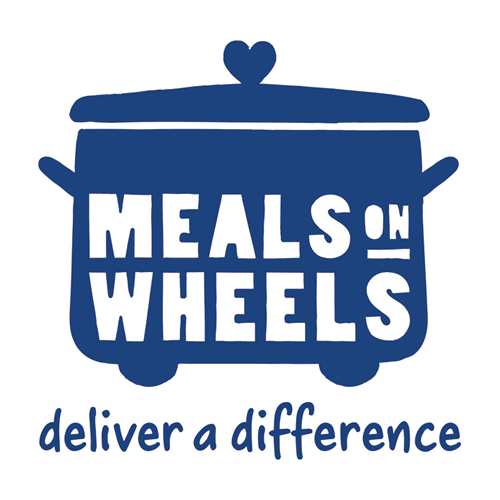Corporate Responsibility
Dairy Crest places considerable store in its Corporate Responsibility (‘CR’) work and oversight
It is a core principle of the business to hold high values in the safety and wellbeing of our people; to engage with our local communities; to reduce our environmental footprint; and to play our part in a healthy marketplace. More information can be found in our CR Online Report which includes progress the business has made against its 40 CR pledges.
Awards


First place
Dairy Crest came top of the prestigious BITC CR Index 2014 with 4.5 stars (98%)

Highly Commended
Responsible Business of the Year 2013

Winner
Jaguar Land Rover Sustainable Marketplace Award 2013

Winner
Sustainable Supply Chain Award 2013

Finalist
FT Corporate Responsibility Company of the Year 2014

Winner
Sustainable Leaders Awards – Supply Chain Sustainability 2013

Winner
Food Manufacturer Awards – Judges Award for Sustainability 2013

Top 50
Reputation Institute
Mandatory Greenhouse Gas Report In line with the requirements of the Companies Act 2006 (Strategic Report and Directors’ Report) Regulations 2013 our greenhouse gas (‘GHG’) emissions are quantified below. Read more...
We follow the Greenhouse Gas Protocol Corporate Accounting and Reporting Standard to calculate emissions from the combustion of fuels (Scope 1) and from purchased electricity, heat, steam and cooling (Scope 2). Carbon emission factors are used to convert each activity that gives rise to GHG emissions to a carbon dioxide equivalent (CO2e) using the latest UK government conversion factors for company reporting.
The GHG data reported below relates to emissions from activities in the operational control of Dairy Crest Group plc from 1 April 2013 to 31 March 2014 consistent with our financial reporting period.
Green House Gas Emissions for 1 April 2013 to 31 March 2014
|
Scope 1 |
87,256 |
Tonnes CO2e |
|
Scope 2 |
74,646 |
Tonnes CO2e |
|
Total – Scope 1 and 2 |
161,902 |
Tonnes CO2e |
|
Intensity ratio |
74.71 |
kg CO2e per tonne of milk intake |
|
Emissions from biomass fuel |
27,619 |
Tonnes CO2e |
Scope 1 emissions data includes material sources of fossil fuels used at manufacturing sites and depots and road fuel used in the transport and distribution of intermediate and finished products. Road fuel used in company cars operated by Dairy Crest for business travel is also included. Minor losses of refrigerants used in cooling equipment have been converted to tonnes of carbon dioxide equivalent and are included for completeness.
Scope 2 emissions data includes material sources of purchased electricity used at manufacturing sites, depots and offices.
We employ a ‘per tonne of milk intake’ denominator as the most effective measure of relative performance. This measure is consistent with our internal target setting process and how we communicate progress.
Consistent with the GHG Protocol emissions from biologically sequestered carbon are reported separate from the other Scopes. These comprise emissions from combustion of biomass fuel at our creamery in Davidstow that significantly reduce Scope 1 emissions from fossil fuels. Emissions from combustion of biomass fuels are not included in the emissions intensity ratio reported above.
Environment Read more...
Primary distribution vehicles have an average carbon equivalent emission rate of 794 grams per kilometres travelled
We avoid sending 91.1%
of our manufacturing waste to landfill
Marketplace Read more...
Our lighter brands have a retail sales value of £65.7 m
‘Lighter’ spreads & butters: £27.3 m
Cathedral City Mature Lighter: £33.9 m
Workplace Read more...

Community Read more...
Over the course of 2013/14 our staff supported over 110 local health, education and countryside related good causes
Our staff charity partner is the Prince‘s Countryside Fund

In September 2013 we supported over
400
young people in their quest to get a job through the IGD’s Feeding Britain’s Future Programme

Staff volunteer to support ‘meals on wheels’

Environment
As a leading dairy manufacturer and processor we are aware of global trends and we are determined to play an active role in tackling climate change, reducing waste and looking after our natural resources.
Greenhouse gas emissions
As one of the UK’s leading dairy companies we are determined to play our full part in helping tackle climate change by reducing our energy consumption and dependency on fossil fuel.
Since 2007 we have reduced our carbon emissions equivalent from manufacturing energy use by 23.7% and are on course to exceed our target of a 30% reduction by 2020. Progress to date has principally been achieved through the use of environmentally friendly biomass boilers and through everyday efficiency saving and awareness programmes. Good examples of these include the investment we are making to replace lighting systems with LED alternatives in our factories which are much more energy efficient and the progress we are making to replace the few smaller remaining refrigeration systems that run on HCFC’s by 2015.
Today our fleet of primary distribution vehicles has an average carbon equivalent emissions rate of 794 grams per kilometre travelled and all company cars have an average published emissions level of less than 121 grams per kilometre travelled.
Our total scope 1 and scope 2 greenhouse gas emissions for 2013/14 are reported on page 23.
Water
Over the course of the year we continued to reduce the amount of water we use in our sites by a further 1.7% which now means we have reduced water usage by 17.4% since 2007 and are on target to exceed our target of a 20% reduction by 2015 against that same base line.
In addition to reducing our own water footprint we are also helping farmers reduce theirs by paying for them to use ‘WaterWell’ an innovative on-farm water auditing programme. Through this programme our farmers can request a practical assessment of water usage for all aspects of their dairy enterprise. This tool provides the farmer with a detailed report benchmarking their results against industry data and provides them with recommendations for greater efficiency.
Waste
We want to reduce waste that arises throughout our supply chain, from the point at which goods enter our doors right through to when the customer disposes of our packaging. Our overall aim is zero waste to landfill by 2015 (except where it is not environmentally beneficial to do so) and by the year end we achieved a 91.1% landfill avoidance across our manufacturing sites.
In addition to avoiding sending waste to landfill we have also invested in new ways of packaging our products so they are not only made with less material but they are also made with more recycled material. Highlights include the continued roll out of our newly designed plastic milk bottle that is made from 15% less plastic on average compared to its previous counterpart and it is now made using up to 20% recycled material since February 2014.
Marketplace
We are committed to creating healthy, tasty enjoyable products, making it easier for consumers to choose healthier foods and to play our part in helping to tackle obesity.
Independent research tells us that three quarters of people in the UK want to eat more healthily with fat, salt, sugar and calories respectively topping the concerns of consumers. To ensure we give consumers what they want we have continued to invest in our portfolio of lower fat brands through advertising, promotions, reformulation, rebranding and innovation.
Consumer data shows that last year the lighter variants of our brands achieved a collective retail sales value of £65.7 million with Cathedral City Mature Lighter leading the way with a retail sales value of over £33.9 million, our lighter spreads and butters brands now have a retail sales value of over £27.3 million.
It has been a busy year for innovation this year and over the course of 2013/14 we were proud to develop and launch several healthier products including our Clover Additions range, Clover Lighter than Light, Utterly Butterly Lightly and Frylight Garlic Oil.
As part of our commitment to helping consumers manage their calorie intake and in order to meet the commitment we made as part of the Department of Health’s Responsibility Deal we have launched a greater range of portion sizes including a new 250ml sized bottle of FRijj milkshake and smaller individual 48 gram sized packs of Cathedral City Mature Lighter which are 150 calories.
Dairy Crest remains fully committed to building a strong and secure business on which our farming suppliers can depend and as the only listed British dairy company we are proud that the 1.9 billion litres of milk we use each year to make our products is British and farm assured.
We are publicly committed to offering our supplying farmers a fair and competitive milk price, help them focus on efficiency and best practice throughout the milk supply chain and provide advice and support services on issues such as legislation, animal welfare and wildlife support.
We also work collaboratively with non farming suppliers to ensure compliance with our Ethical Supply Policy. The policy, which was introduced in 2011 and reviewed in 2013, is designed to extend our vision and values across a diverse and extensive supplier base, whilst recognising that those who supply our business with much needed goods and services operate in a variety of different cultural environments.
Workplace
Safety at work
Our safety at work objective is simple; we want everyone who works for us, and with us, to go home to his or her family at the end of their working day without any injury or occupational ill health.
Although a single accident is always one too many, over the course of the last 12 months we have made good progress in achieving our targets and the number of accidents with more than three days lost time or reportable to the HSE has fallen for the fifth consecutive year – since April 2013 our accident rate has fallen by a further 30% to 708.
Despite changes by the HSE in 2012 to the Riddor regulations which require companies to report accidents that result in seven days off work, or those involving specified injuries, we will continue to target a reduction in accidents that result in three days off work as we believe this target will help us further reduce accidents at work and maintain the focus required, in reducing all accidents with lost time. We will continue to concentrate on further reducing slips, trips and falls as this accounts for 45% of lost time accidents.
Mirroring our progress in reducing accidents the number of days lost has also fallen for the fifth consecutive year, last year reducing by a further 24.7% from 1,630 to 1,227.
In addition to maintaining and growing accident awareness campaigns we have also worked hard to encourage colleagues to formally report near misses and hazards as we know that being aware of a potential problem is the most effective method of preventing it. We have also heavily promoted safety conversations, which include correcting unsafe behaviours and encouraging safe behaviours. To this end we have seen a continued increase year on year in both aspects with near misses and hazards increasing by 32% to 12,354 and conversations by 118% to 53,143 compared with last year.
Our wellbeing strategy
We are particularly proud of the scale and integrated approach to our wellbeing strategy which is based on three key strands:
|
– for everyone who works for us, and with us, to be physically healthier |
|---|
|
– to use our position as a food manufacturer to encourage and engage our employees and consumers to live healthier lifestyles |
|
– to ensure our approach to wellbeing is integrated into all parts of our business so it reduces risk and enhances our reputation for producing healthy products |
With an in-house Occupational Health team in place, Dairy Crest offers staff a range of special services including free voluntary health checks for all employees, including cholesterol and blood pressure. Over the course of 2013/14 almost 30% of employees had a health check related either specifically to the risks in their jobs or as part of our health promotion campaign. This builds on the 40% of employees who had a health check in 2012/13. We also began a new wellbeing programme to deliver two wellbeing days at each site and depot over the next 12-18 months, in order to increase participation in our voluntary wellbeing checks to a level cumulatively above 50% by 2018.
Community
We know the actions we take often have an effect on the neighbourhoods where we are based, and as the main employer in many areas we believe we have a unique opportunity to play a positive role in supporting local and national community projects that make best use of our expertise and knowledge, provide a legacy and support our overall business strategy. With this is mind our community programme is divided into four strands:
1. Looking after the countryside and broader environment
2. Promoting healthy living
3. Supporting education and employability
4. Engaging with local communities
1. Looking after the countryside and broader environment
As the UK’s leading British owned dairy company we know that family run dairy farms are the backbone of the dairy sector in the UK and without them we wouldn’t have a business. We also know that for our business to remain successful the countryside needs to be an attractive place to live and that the rural economy is hugely important to the UK, turning over £300 billion, employing 5.5 million people and offering untapped potential to generate another £236 billion to £347 billion per year.
To help achieve these aims through our community programme we support several key projects:
The Prince’s Rural Action Programme and The Prince’s Dairy Initiative
Through the Prince’s Rural Action Programme, which was until recently chaired by Mark Allen, we are working with a diverse number of companies from banks to retailers to understand the impact businesses can have on improving rural communities and put these thoughts into action. Through one such project The Prince’s Dairy Initiative, chaired by Lyndsay Chapman, our Director of Agriculture and Farming Communications, we are continuing to work with other businesses to help the most vulnerable, non-aligned, dairy farmers become more economically viable. Since we successfully completed the pilot with 74 dairy farms in 2012 we have continued to make progress on our target of helping a further 300 farms by 2016.
The Prince’s Countryside Fund
Working alongside HRH the Prince of Wales and a handful of other businesses, Dairy Crest helped set up the Prince’s Countryside Fund the purpose of which is to; improve the sustainability of British farming and rural communities, target the areas of greatest need; reconnect consumers with the countryside and to support farming and rural crisis charities through a dedicated emergency funding stream. The latter of which was of particular importance in the winter of 2013/14 when there was severe flooding in many parts of the UK, in particular Somerset.
By working collaboratively through the Fund, and with our Davidstow and Country Life brands, since 2010 all the companies involved have been able to donate £3.9 million in grants, support over 87 rural projects ranging from helping upland farmers through to supporting rural youth unemployment groups the UK. In total the Fund has helped more than 64,000 people.
Pub is the Hub
Aware of the dwindling number of local facilities available to rural communities, and conscious that this decline has a detrimental effect on the sustainability of rural economies, we are proud to support ‘Pub is the Hub’ a not-for-profit organisation that encourages local authorities, local communities, licensees and pub owners to work together to support, retain and locate services within rural pubs.
To date 27 different varieties of services have been developed using pubs, including: shops, school meals, post offices, community centres, community cafes, keep fit, library services, allotments, play areas, take away food, cinemas, theatre, community travel, community acquisition and computer training.
Of these projects Dairy Crest is particularly proud of the rural community shops we have helped fund in pubs in the South West of England – facilities that provide isolated communities with access to locally produced food and household goods.
2. Promoting healthy living
With a significant catering and residential delivery business (Foodservice and milk&more) in 2012 we were proud to become the first company to support Elmbridge Council’s Meals on Wheels programme delivering much needed, hot, fresh meals to vulnerable people in our local community.
The support we give this programme was highlighted in September 2013 when staff from our Claygate office were filmed as part of the save ‘Meals on Wheels’ campaign which was fronted by celebrity cooks Si and Dave – more commonly known as the Hairy Bikers, who said:
“Thank you to the lads and lasses at Dairy Crest who are volunteering their time to deliver hot meals to local people who need them. You’ve made a big difference to our saving ‘Meals on Wheels’ campaign”.
3. Supporting education and employability
To make sure we are able to play our part in helping young people onto the career ladder and to showcase a career in food production we have proactively set up a number of education programmes catering for GCSE, A-Level, undergraduate and postgraduate students and this year we again played a leading role in supporting the Institute of Grocers and Distributors (IGD) Feeding Britain’s Future Programme.
Feeding Britain’s Future at a glance
- Dairy Crest continues to sit on the steering group of the Institute of Grocers and Distributors (IGD) Employability Group
- In 2013 we supported over 400 young people in their quest to get a job
- We held events at our Davidstow Creamery and Nuneaton Distribution Centre
- We co-hosted over 30 sessions with Sainsbury’s, Asda and Marks & Spencer
In September 2013 we set up a new employability steering group to ensure that going forward we continue to focus on the skills gaps needed for both Dairy Crest and food manufacturing as a whole.
4. Engaging with local communities
The fourth strand of our community strategy is our Local Community programme which is owned and run by our staff. Through this programme any employee can put forward a good cause they would like the Company to support either through money, a product donation or volunteering. Over the course of 2013/14 Dairy Crest staff supported over 110 good causes.






